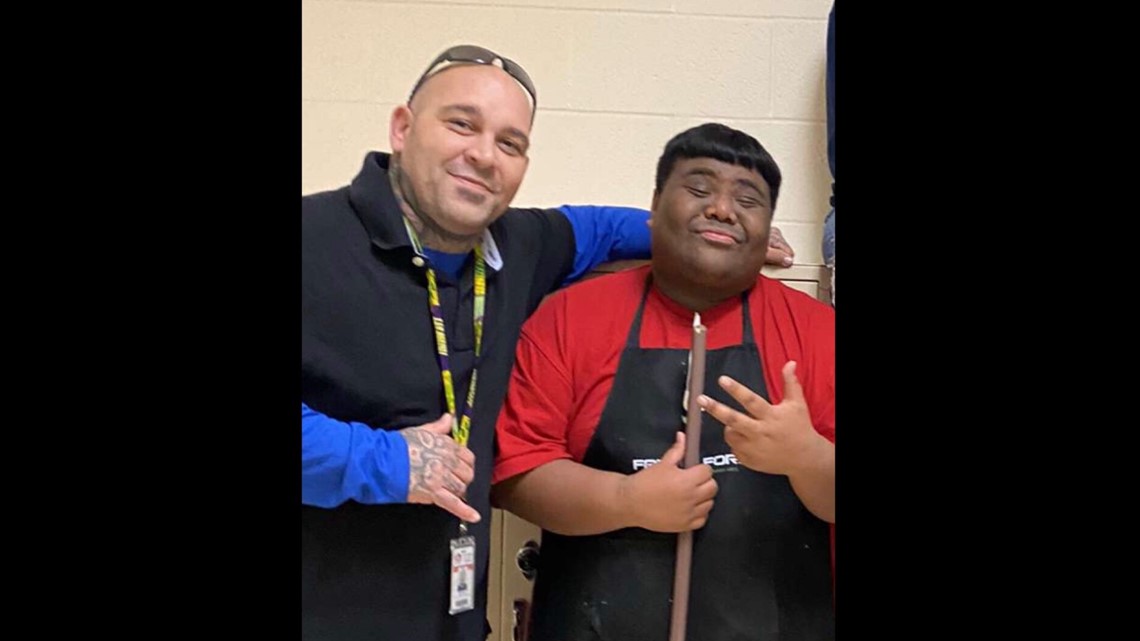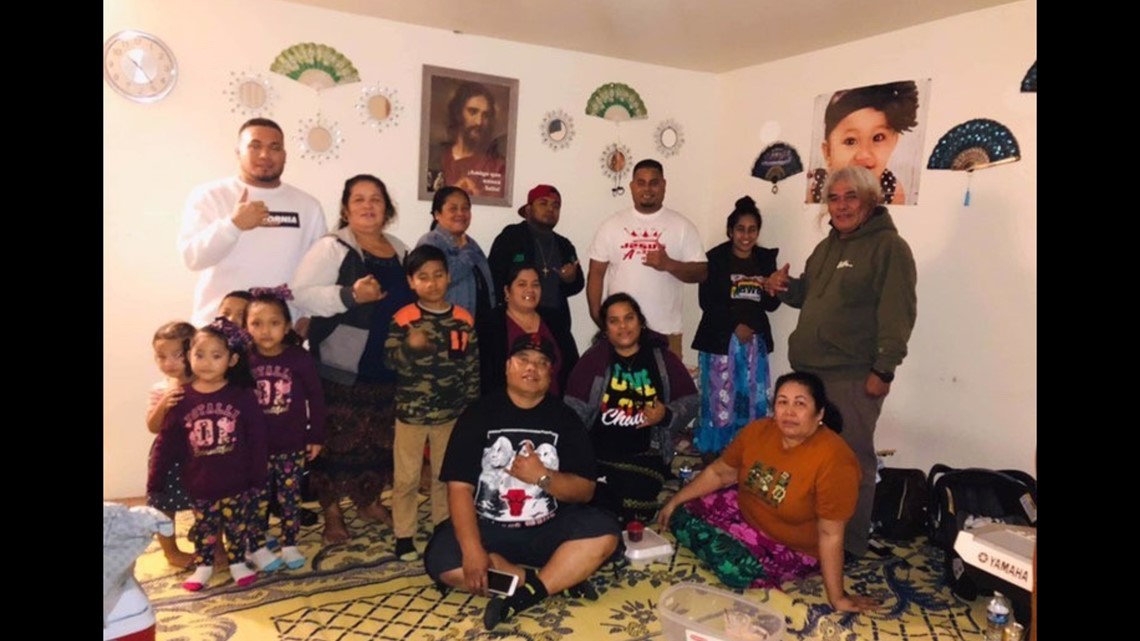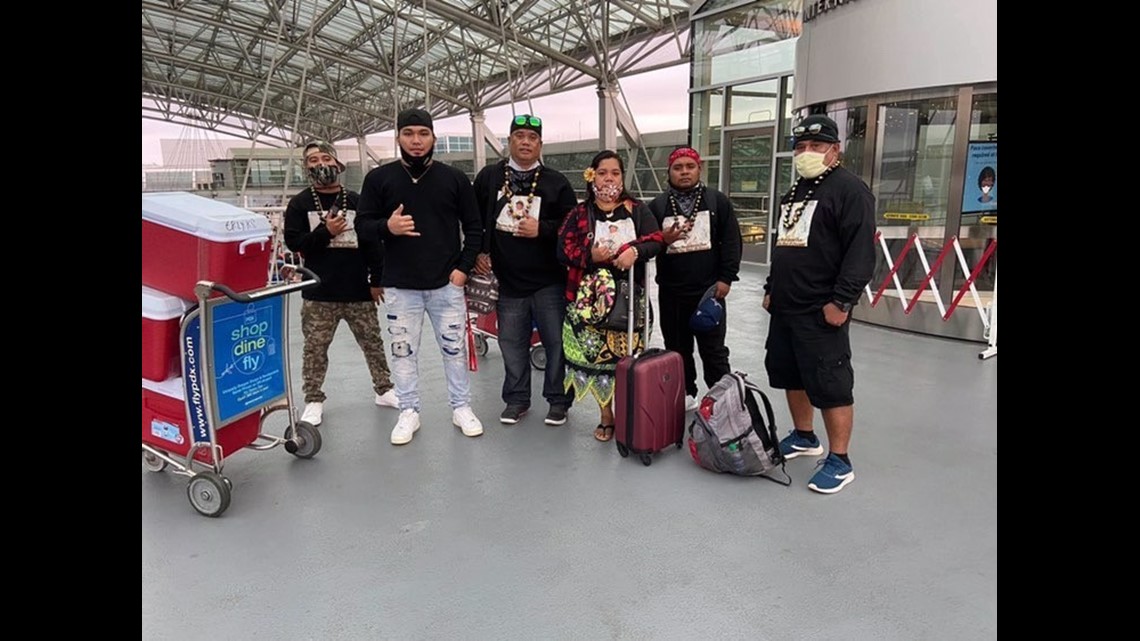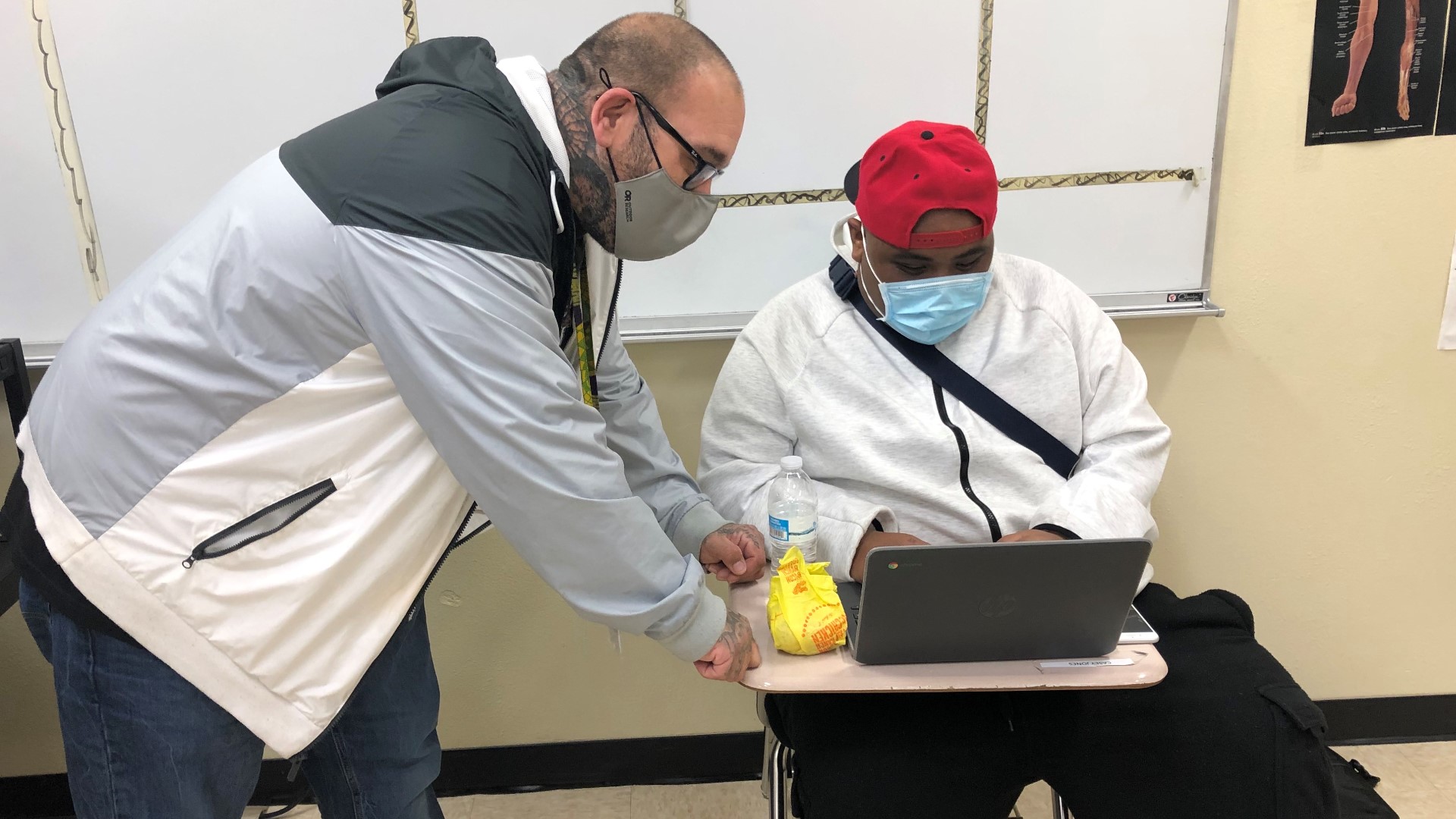SALEM, Ore — You've got to feel for kids trying to go to school during this pandemic. The virus upended everything. It's daunting to read the data about what's gone wrong, so we're taking a moment to show you what's going right.
This is the story of one community resource specialist who works closely with Pacific Islander students in the Salem-Keizer School District. His name is Ken Ramirez. He sees the kids' struggles but also their hopes and dreams and he's committed to getting them across the finish line.


Salem-Keizer serves 1,451 students who identify as Native Hawaiian and Pacific Islander. These families come from far-flung places like the state of Chuuk in Micronesia, and the Marshall Islands, halfway between the Philippines and Hawaii.
Ramirez says they're crossing the Pacific seeking opportunity.
"Families are very proud, and they really want their students and young children to get their education in the states — something a lot of the elders didn't get to have," said Ramirez.
2020 was disruptive for schools in general but Pacific Islander families face unique challenges when it comes to remote learning. Ironically, one of them is that celebrated "island vibe."
Ramirez says the culture puts a premium on relationships not rigid schedules, and that can sabotage student work habits.
"It's really hard to take that structured environment that we use in school and now place that in a home who culturally doesn't have those kinds of systems in place. It's not a bad thing at all. It's just kind of a different way of life," said Ramirez.
The language barrier is another obstacle for Pacific Islander parents who want to help their kids with distance learning. Many speak Marshallese or Chuukese and need interpreters. "Advocating for themselves is hard sometimes," Ramirez admits. "If a family hasn't had an education here in the states, they kind of feel that the principals or administrators are the ones who know best."
Right now, the Salem-Keizer School District is adding staff and resources but still has a backlog of families asking for help.
"Part of my job is getting out and teaching students to advocate for themselves and teaching them how to use their voice, then talking with the families and letting them know there is people they can reach out to in the district that care," said Ramirez.
Rayjay Masasi and his brother, Bryan, are two of the Pacific Islander students Ramirez connects with. They go to McNary High School. The boys have five siblings at home and admit they struggle to stay focused.


"It's crazy. Crazy, yeah." said Rayjay.
But it's not just schoolwork weighing on their minds. Ramirez says, "A lot of our students are working jobs while trying to do school at the same time. I have more students working this year than any other year I've been in this position. I have a lot of students who help out at home a lot."
Rayjay gets that. He says his family was homeless at one time. "I really want to help out my family — what we've been through in the past. I just want to thank God for giving us a house that we have right now. I just hope I can do a lot of good things for my family throughout my future. I want to be the first in my family to make it to college."
Rayjay is a senior and will finish up classes at the end of January. In the meantime, Ramirez is working with small groups of students face-to-face at the district's six high schools.


He says kids "crave" that in person learning and the one-on-one enables them to catch-up after they've fallen behind.
"I truly believe these kids will make it," he adds. "I believe they want to make it, and nothing will stand in their way."

